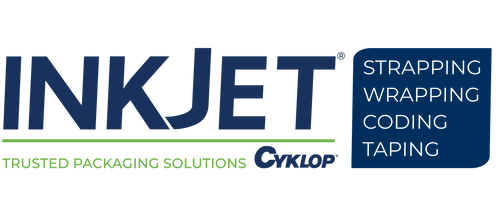Inkjet Printing on Flexible Packaging: Choose Your Hardware
Although at first glance, flexible packaging may sound a bit like an abstract category, this term actually responds to a small assortment of specific and familiar materials. All you need to do is to imagine a few everyday foods found in the supermarket to understand what we mean by “flexible packaging.” Almond milk cartons, cookie packages, coffee bean bags—each of these containers are made from a substrate consisting of paper, plastic, aluminum foil, coated paper, film, or a combination of these materials whether porous or non-porous, and exemplifies the idea of what flexible packaging is.
Of course, given that this category is made up of a range of materials, it can leave those in the packaging industry a bit confused about how to best print on these products, as they are all uniquely different substrates. This is an especially important consideration for those in the food industry, as edible goods must display dating information/codes to ensure traceability in the event of a recall and to inform consumers when the products are no longer safe to eat.
To provide clarification on this subject, we have outlined some of the most important considerations to have when printing on flexible packaging, as well as which printers are best for the job.
Key Elements to Consider When Printing on Flexible Packaging
Before you can select a printer or ink, you need to consider the unique characteristics of your production line. After all, just as the category of flexible packaging entails different substrates, packaging operations themselves may use these materials in very different ways.
Taking a look at your own setup, consider the following:
Which Codes Do You Need to Print?
When printing on flexible packaging, one of the first and most important questions to ask is which codes will be needed on the products. This is because certain codes (best-by dates, lot codes, packaging dates, etc.) communicate information without needing to be scanned, whereas other codes (namely barcodes and QR codes) require scannability. To ensure that the latter can be scanned without fail, you need hardware that is able to reliably encode at a high resolution.
If your operation is primarily printing non-scannable codes, a continuous inkjet (CIJ) printer will fit your needs, as they are able to make legible dates and characters day-in and day-out. However, for scannable barcodes, thermal inkjet (TIJ) printers will generally be better as they encode at a higher resolution referred to as DPI (dots per inch).
What Is the Speed/Layout of Your Production Line?
A major factor to consider when selecting hardware is how quickly your production line moves. For higher-output, faster-moving operations, CIJ printers will be optimal, as they can encode at a rate of about 300 m/minute (~980 f/minute). Alternatively, TIJ machines print at around 100 m/minute (~330 f/minute). CIJ printers can handle variations in a packages contour, while TIJ requires more of a flat substrate to assure a legible print. Another thing to consider is print head distance to product, where CIJ printers are able to have a larger separation distance from product, while TIJ printers require much closer spacing near product to be coded upon.
If your operation requires printer mobility, you should look into certain TIJ models that can be mounted in fixed positions or operated in a handheld fashion. On the other hand, CIJ printers will require being mounted somewhere along your production line.
What Type of Ink Do You Need?
Given that flexible packaging is an expansive material category, it’s essential that you use the best ink to fit your products. This means that you should consult with an expert to validate that you are using the correct ink, have a custom ink created for you, or confirm that your chosen printer will be able to use your chosen ink as well.
Although both CIJ and TIJ models will generally be able to use the same ink categories—i.e., solvent-based inks and water-based inks—certain limitations do apply because of their different input methods (CIJs use ink-filled chipped bottles, while TIJs use cartridges). For instance, MEK (methyl ethyl ketone) is one of the fastest drying solvents available today, but it’s impossible to use in cartridges, making it incompatible with TIJ machines. Given these often minute, yet impactful details, expert guidance is highly recommended.
Choosing the Hardware That’s Right for You
As you reflect on the above factors and how they relate to your printing needs, consider these CIJ and TIJ options for your hardware search:
The CIJ Choice: InkJet, Inc. DuraCode
If your printing needs revolve around high-volume output and non-scannable codes, the DuraCode printer will be a perfect fit. With a max printing speed of 320 m/minute / 1050 f/minute, this CIJ model will be able to deliver legible codes at a faster rate and with a faster drying ink than TIJ devices. The DuraCode’s IP55 stainless steel design is fairly robust, allowing you to maximize the uptime of your production line.
The TIJ Choice: InkJet, Inc. Anser U2 Pro-S
For companies that need to print scannable codes and don’t necessarily require the high-speed capability of a CIJ, the Anser U2 Pro-S will be a great option. However, it can achieve speeds pretty close to the CIJ alternative, it is just not the best choice for continuous lines. Delivering a DPI of 600 x 300, the Anser series is able to print readable barcodes and QR codes on flexible packaging, in addition to non-scannable dating information, if needed. Lightweight and available in mobile varieties, the Anser U2 also boasts a memory capacity that is able to save 999 codes at a time, making it fine-tuned to the needs of smaller operations.
How We Can Help Your Hardware Search
While successfully printing on flexible packaging does require you to consider a number of factors, expert guidance is the best thing to put you on the right path. Our testing and validation services can ensure that you find the right ink to print your desired codes. Based on descriptions of your manufacturing line, we will be able to help you find the machine to best fit your needs.
To learn more about how to print on flexible packaging or to inquire about our printing and ink validation services, contact InkJet, Inc. today by dialing (800) 280-3245.



